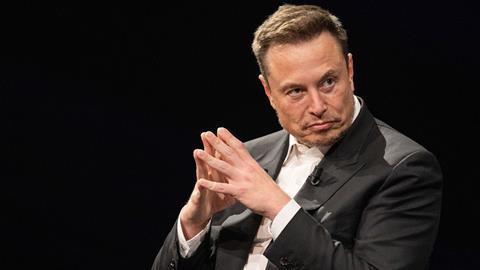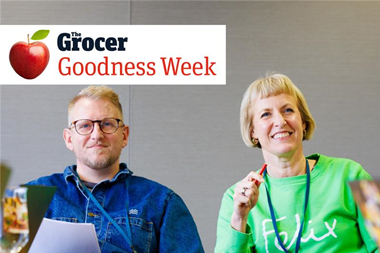X is suing brands for not advertising, as its audience diminishes
It’s hard to pick the wildest thing from the past few weeks of Elon Musk’s X (formerly Twitter). Monday’s Musk ‘interview’ with a slurring Donald Trump in a livestream on the platform, perhaps. His tweet that “civil war is inevitable” in response to posts about the recent UK riots. The welcoming back to the platform of ‘Tommy Robinson’ and Katie Hopkins, who were banned under its former owners. The charge from the European Commission of a breach of its Digital Services Act, on the grounds of “suspected breach of obligations to counter illegal content and disinformation”.
But perhaps the barmiest is X suing fmcg giants Unilever and Mars – among other companies – accusing them of unlawfully agreeing to “boycott” the site, depriving it of “billions of dollars” in advertising revenue.
X has alleged those firms withheld spending by following safety standards set out in a World Federation of Advertisers initiative called Global Alliance for Responsible Media, which has been disbanded in the wake of the claim.
“No small group of people should monopolise what gets monetised,” said X CEO Linda Yaccarino.
So what is Musk’s game here? And what is the future of brands advertising on X?
“Musk’s plan to take brands to court for not advertising on his platform is nothing short of ludicrous,” says James Kirkham, co-founder of marketing agency Iconic. “You can’t bully brands into handing you their advertising spend.”
It’s certainly the view of Musk-accused Unilever. “Unilever, and Unilever alone, controls our advertising spending,” said Herrish Patel, president of Unilever USA in a statement to the Republican-led US House Judiciary Committee on anticompetitive collusion in online advertising last month. “No platform has a right to our advertising dollar.”

Bellicose approach
Brands – in alleged cahoots or otherwise – had been pulling advertising from the platform since last year, over concerns their ads were showing up next to pro-Nazi and hate speech content. It led to Musk telling them at a conference late last year: “If somebody is going to try to blackmail me with advertising, blackmail me with money, go f*** yourself. Go f*** yourself. Is that clear? I hope it is.”
Perhaps Musk is playing 4D chess with the latest action, with some sophisticated strategy beyond the comprehension of mere mortals. Or perhaps not.
“I suspect Musk feels genuinely aggrieved by the big advertisers and is looking for his pound of flesh,” says Wander Bruijel, senior partner at brand agency Born Ugly, which has worked with Fairy, Heck, and Tesco’s Wicked Kitchen. “It is in keeping with his bellicose style of business.
“It is not the first time Musk has entered into reactive legal spats only to step back from the brink. I do not suspect much will be gained here other than by the lawyers involved and the solidification of his image as a supposed ‘freedom fighter’.”
Musk’s claimed belief in free speech and that X be the world’s town square is a “conundrum” for the platform and the brands advertising on it, says Fergus McCallum, CEO of ad agency TBWA\MCR, which has worked with Soreen, Lidl and Guinness.
“Any efforts to moderate harmful and illegal content are directly in conflict with its need to allow and encourage extremities of opinion to fuel content and interaction,” he says. “So, it’s a commercial conundrum for both X and advertisers. One side needs the revenue, the other needs to reach an audience.”
Read more about social media:
-
Nivea launches TikTok Shop to tap younger demographic
-
Fever-Tree backlash shows the damaging nature of trial by social media
-
Here’s how fmcg brands can take TikTok to the next level
X’s audience is diminishing – with daily active users down 18% versus a year ago, according to Sensor Tower – but remains huge. Is it worth the risk in reaching them?
“Brands should look long and hard at whether it’s the right platform for them for the long term,” says Bruijel. “There are better, more innovative, and less risky platforms out there that could yield better results.”
Kirkham agrees. “If you’re an fmcg brand, it is business critical to communicate reliability, safety, and trust,” he says. “Therefore, there’s everything to lose by having your content juxtaposed with pornographic material or hate speech.”
Ultimately, it’s for individual brands to “make your own choice, not in concert with other advertisers” says McCallum.
“Whether X has a future as an advertising platform for the majority of fmcg brands remains to be seen. Unless things change, it won’t.”

























No comments yet